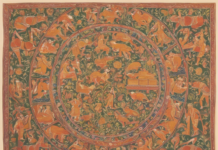The political realm in India is a vibrant landscape, with diverse parties playing crucial roles in shaping the democratic process of the country. One such significant player is the Janata Dal (United) or JD(U). Founded in 1999 by the current Chief Minister of Bihar, Nitish Kumar, the party has emerged as a key force in the Indian political scenario, particularly in the state of Bihar.
History and Ideology
The Janata Dal (United) traces its roots back to the Janata Party, which was formed in 1977 after the Emergency period in India. The party follows a center-left political stance, focusing on issues of social justice, secularism, and sustainable development. It emphasizes the principles of non-alignment in foreign policy, federalism, and local self-governance.
Electoral Performance
JD(U) has been a dominant force in Bihar politics, often in coalition with other parties like the Bharatiya Janata Party (BJP). The party came to power in Bihar in 2005 with Nitish Kumar as the Chief Minister. Known for his focus on governance and development, Kumar led the state through a period of growth and progress, earning praise for his policies in areas like education, infrastructure, and public service delivery.
Despite a brief hiatus in 2013 when JD(U) parted ways with the BJP, Nitish Kumar returned to power in Bihar in 2015 after reuniting with the BJP. The party has also expanded its presence in other states like Jharkhand and Arunachal Pradesh, albeit on a smaller scale.
Key Leaders
Nitish Kumar remains the face of the JD(U) and a prominent leader in Indian politics. With a reputation for clean governance and a focus on development, Kumar has positioned himself as a credible leader with a mass appeal. He has won praise for his policies like the “Saat Nischay” (Seven Resolves) initiative aimed at improving the quality of life in Bihar.
Apart from Kumar, other key leaders in the party include RCP Singh, the national president of JD(U), and Lallan Singh, the party’s state president in Bihar. These leaders play crucial roles in shaping the party’s strategies and vision for the future.
Challenges and Opportunities
Like any political party, JD(U) faces its share of challenges and opportunities. With the rise of competitive politics and the emergence of new players in the field, the party must continuously adapt to the changing dynamics to stay relevant. The recent electoral setbacks in states like Delhi and Uttar Pradesh highlight the need for JD(U) to strengthen its organizational structure and connect with the masses effectively.
However, the party also has several opportunities for growth, especially in states where regional parties hold sway. By focusing on grassroots mobilization, appealing to youth voters, and leveraging social media for outreach, JD(U) can expand its footprint beyond Bihar and establish itself as a formidable force in national politics.
Future Outlook
As India gears up for the upcoming state elections and the 2024 general elections, the role of JD(U) in shaping the political narrative cannot be underestimated. With a mix of experienced leadership, a focus on development, and a keen understanding of regional dynamics, the party is well-poised to make significant inroads in the Indian political landscape.
The coming years will be crucial in determining the trajectory of JD(U) and its role in national politics. By staying true to its core values of inclusive growth, social justice, and good governance, the party can carve a niche for itself and emerge as a key player in the ever-evolving political scenario of India.
Frequently Asked Questions (FAQs)
-
What are the core ideologies of Janata Dal (United)?
JD(U) follows a center-left political stance, focusing on issues of social justice, secularism, sustainable development, non-alignment in foreign policy, federalism, and local self-governance. -
Who is the current Chief Minister of Bihar and the face of JD(U)?
Nitish Kumar is the current Chief Minister of Bihar and a prominent leader of the Janata Dal (United). -
What are some of the key policies implemented by Nitish Kumar in Bihar?
Nitish Kumar is known for initiatives like the “Saat Nischay” (Seven Resolves) aimed at improving the quality of life in Bihar through measures like education, infrastructure development, and public service delivery. -
Which other states have witnessed the presence of JD(U) apart from Bihar?
JD(U) has expanded its presence in states like Jharkhand and Arunachal Pradesh, albeit on a smaller scale. -
What challenges does JD(U) face in the current political scenario?
JD(U) faces challenges like the rise of competitive politics, organizational strengthening, and connecting with the masses effectively to stay relevant and competitive. -
How can JD(U) expand its political footprint beyond Bihar?
By focusing on grassroots mobilization, appealing to youth voters, and leveraging social media for outreach, JD(U) can expand its presence in other states and establish itself as a key player in national politics. -
Who are some other key leaders in Janata Dal (United) apart from Nitish Kumar?
RCP Singh, the national president of JD(U), and Lallan Singh, the party’s state president in Bihar, are key leaders who play crucial roles in shaping the party’s strategies and vision for the future. -
What is the historical background of Janata Dal (United)?
Janata Dal (United) traces its roots back to the Janata Party, which was formed in 1977 after the Emergency period in India, and has since evolved into a key player in Indian politics, particularly in Bihar. -
What is the current electoral performance of JD(U)?
JD(U) has been a dominant force in Bihar politics, often in coalition with other parties like the Bharatiya Janata Party (BJP), holding power in the state intermittently and focusing on governance, development, and social justice issues. -
What is the future outlook for Janata Dal (United) in Indian politics?
With a mix of experienced leadership, a focus on development, and a keen understanding of regional dynamics, JD(U) is well-poised to make significant contributions to Indian politics and shape the political narrative in the coming years.










